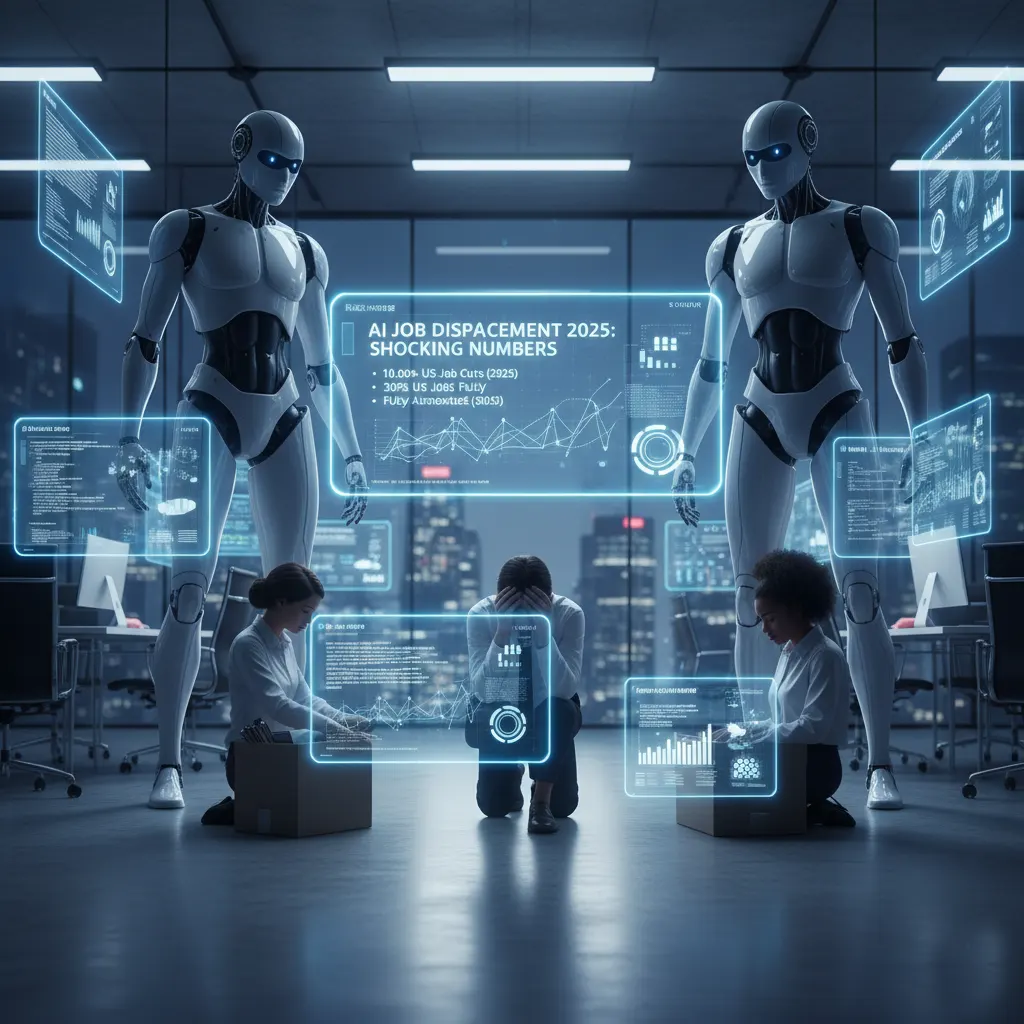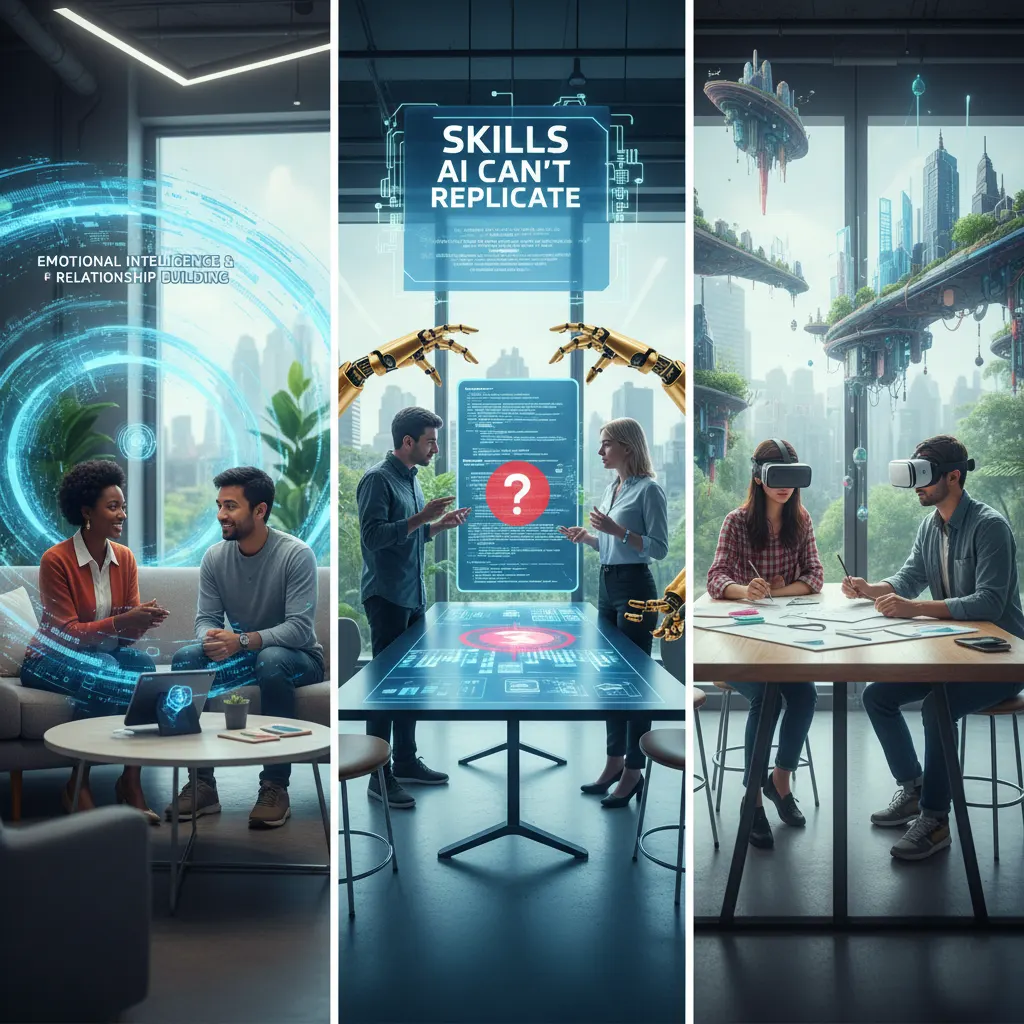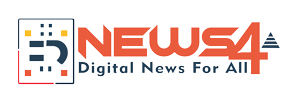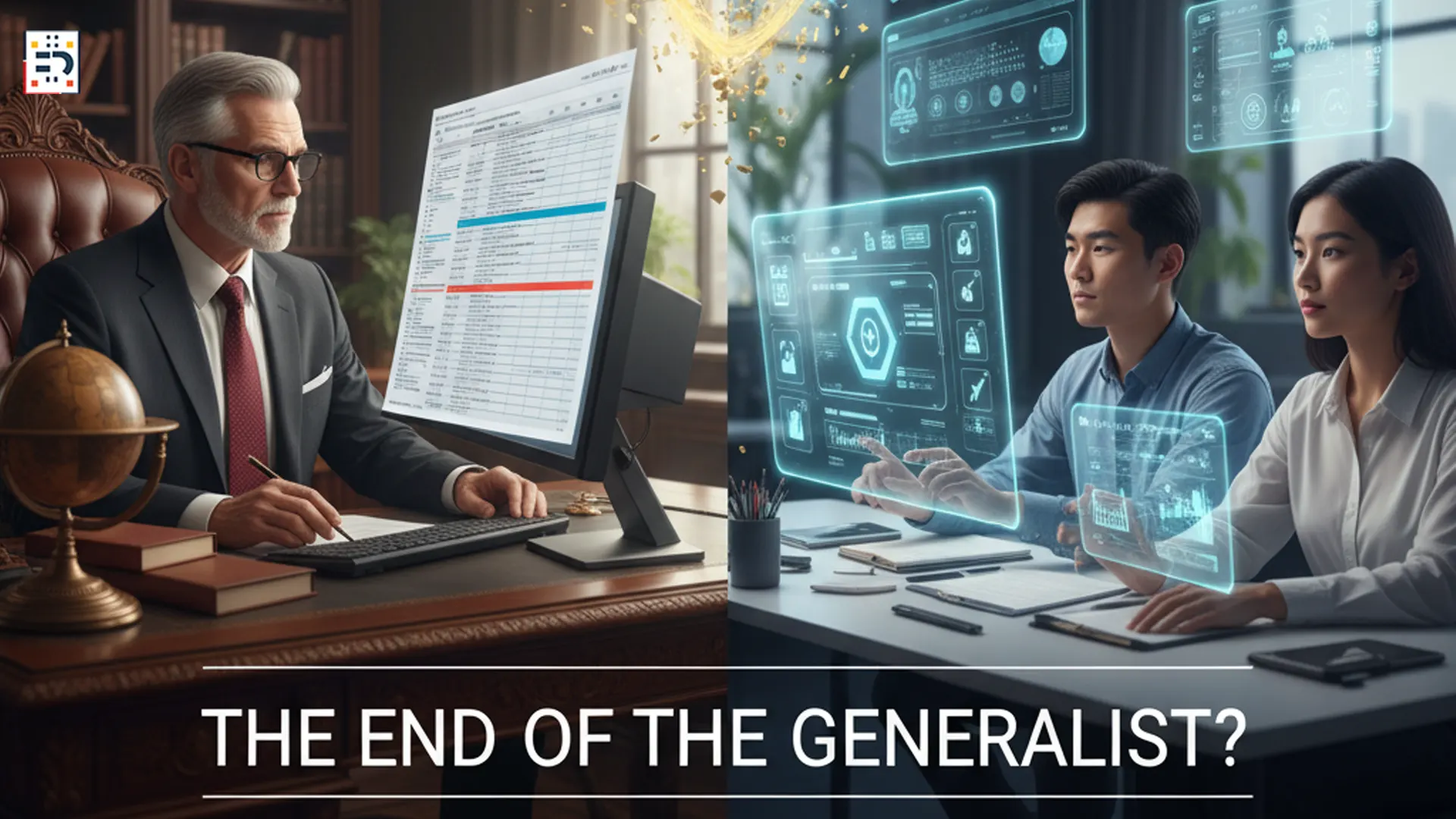The AI job replacement revolution isn’t coming—it’s already here. And if you’re a white-collar professional in the United States, your career is about to change forever.
AI Job Displacement 2025: The Shocking Numbers
In just the first seven months of 2025, generative AI adoption was directly linked to over 10,000 job cuts across the United States, according to outplacement firm Challenger, Gray & Christmas. But that’s only the beginning.
By 2030, 30% of current U.S. jobs could be fully automated, while 60% will see significant task-level changes due to AI integration, according to National University’s comprehensive AI job statistics report.
The most alarming prediction? Anthropic CEO Dario Amodei warns that AI could eliminate half of all entry-level white-collar jobs within five years.

Which Jobs Are Most at Risk?
Recent Bloomberg research reveals that AI could replace 53% of market research analyst tasks and 67% of sales representative tasks, while managerial roles face only 9-21% automation risk.
High-risk sectors include:
- Retail: 65% of cashier and checkout jobs face automation by 2025
- Banking: 54% of banking jobs have high potential for AI automation
- Legal: Paralegals face an 80% risk of automation by 2026
- Healthcare admin: Medical transcription is already 99% automated
- Manufacturing: 2 million jobs lost by 2025 due to robotics and AI integration
The Personalized AI Revolution: Your $20/Month Expert
Here’s the game-changer: personalized AI assistants are democratizing expertise that once cost $500 per hour.
The market for AI workplace assistants is projected to explode from $3.3 billion in 2025 to over $21 billion by 2030, according to MarketsandMarkets research.
Take Diego Oppenheimer, a Seattle-based machine learning entrepreneur. Every Friday, his custom AI assistant sends an email that remembers his week better than he does—pulling from calendars, meeting transcripts, and emails to identify decisions made, promises to keep, and priorities ahead.
AI assistants now analyze schedules, manage emails, organize meetings, provide emotional support, monitor health, and optimize energy consumption in smart homes—all while learning from user behavior to become increasingly personalized.
AI Assistants Are Replacing Traditional Apps
Survey data shows that 32% of users have already replaced traditional apps with AI assistants, with 52% of early technology adopters making the switch.
Why? 83% of respondents confirm AI assistants complete tasks faster than apps, and 71% appreciate their capacity to learn personal preferences over time.

The Entry-Level Massacre: Why New Graduates Can’t Find Jobs
January 2025 saw the lowest job openings in professional services since 2013—a 20% year-over-year drop. Fortune reports that the unemployment rate for college-educated Americans ages 22 to 27 hit 5.8% in March 2025, the highest level in four years.
Companies like Shopify, McKinsey, and Duolingo are openly using “AI fluency” to determine who gets hired and promoted—meaning if you can’t work with AI, you won’t work at all.
Jobs That Will Survive (and Thrive)
Not every profession faces extinction. According to U.S. Bureau of Labor Statistics projections:
- Nurse practitioners: 52% growth from 2023 to 2033
- Cybersecurity professionals: 32% growth from 2022 to 2032
- Solar installers: 22% growth projected through 2032
- Wind turbine technicians: 44% growth from 2022 to 2032
Why these jobs? They require physical presence, ethical judgment, creative synthesis, and genuine human empathy—things AI still can’t replicate.
The Truth About “AI Will Create More Jobs”
Tech optimists claim AI will create 170 million new roles by 2030. The reality? 77% of AI jobs require master’s degrees, and 18% require doctoral degrees.
World Economic Forum research shows that 40% of employers expect to reduce their workforce where AI can automate tasks, while 77% plan to upskill their current workforce to better work alongside AI.
The message is clear: adapt or become obsolete.
How to Survive the AI Revolution: 3 Critical Strategies
1. Stop Competing with AI—Orchestrate It
Your value isn’t doing the work anymore. It’s knowing which AI tools to use and how to combine them for breakthrough results. AI platforms like Amazon generate 35% of their revenue through AI-driven recommendation engines—learn to leverage similar tools in your field.
2. Focus on the “Last Mile”
Every industry implementing AI faces friction points where technology meets real-world complexity. Become the person who makes AI actually work in your specific context. According to BCG research, successful AI deployment is only 10-20% about technology—the remaining 70-80% depends on people and processes.
3. Build Skills AI Can’t Replicate
Research from Indeed shows that of roughly 2,900 job skills analyzed, AI is “very likely” to fully replace only 19 skills—just 0.7% of the total.
Focus on:
- Emotional intelligence and relationship building
- Complex ethical decision-making
- Creative problem synthesis
- Strategic thinking and leadership

The Uncomfortable Reality for 2025
48% of U.S. employers are planning to downsize their workforce due to AI—the highest percentage globally.
MIT’s State of AI in Business 2025 report reveals that while only 3% of jobs could be replaced by AI in the short term, nearly 27% could be replaced in the longer term.
Currently, AI is predominantly replacing outsourced, offshore workers. But that’s temporary. U.S. workers are the long-term target.
What This Means for Your Career
The generalist isn’t dead. The expensive generalist is.
Personalized AI hasn’t replaced expertise—it’s unbundled it. The $500/hour consultant gets disrupted by a $20/month AI subscription that never takes vacation, never asks for raises, and works 24/7.
But AI can’t:
- Navigate complex office politics
- Read body language and detect deception
- Feel the weight of ethical dilemmas
- Build genuine trust and relationships
- Adapt to unprecedented situations requiring human judgment
Take Action Now
Ask yourself: What makes me irreplaceable?
Because in 2025, your competition isn’t the person in the next cubicle. It’s the AI assistant in everyone’s pocket that costs less than a Netflix subscription.
The experts who survive won’t be the smartest in the room. They’ll be the most adaptable, the most human, and the most strategic in leveraging AI as a tool rather than viewing it as a threat.
#AIJobs2025 #FutureOfWork #AIAutomation #PersonalizedAI #CareerSurvival #AIReplacement #WhiteCollarJobs #WorkplaceAI #AITrends2025 #JobDisplacement #AIAssistants #TechJobs #CareerAdvice #AIRevolution #WorkforceTransformation


